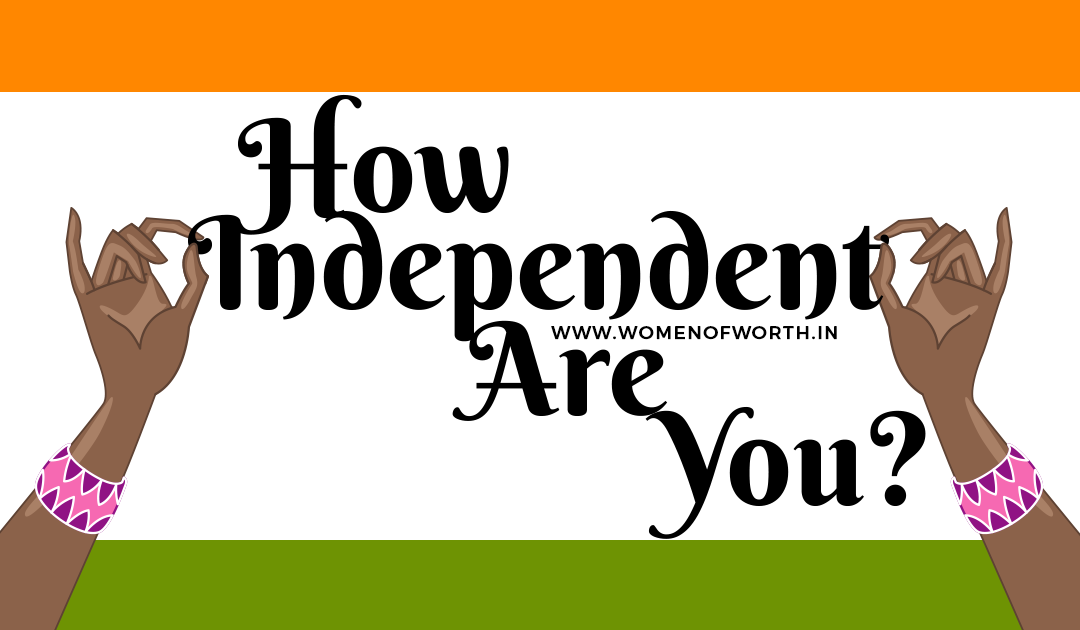India’s current population is 1.35 billion and women constitute nearly half of it. The decreasing male-female ratio is indeed alarming but that may not change till we address our root issues. It is hard to change that just with policies and policing. Have you ever considered why and how almost one half of our population are also counted among the ‘marginalized’? How can such a huge segment of the population continue to be among the ‘marginalized’ for the last 73 years? The answer to that is not just in fighting for newer policies alone but in bringing about a transformation of culture itself. Transforming our culture is about changing prevailing mindsets from the grassroots level up and in this case that would mean challenging stereotypes birthed by patriarchal notions and norms.
Every time you raise your voice for your own freedom, to be who you are, you are also fighting for those around you. Freedom is contagious.
– Kavitha Emmanuel
So, the level of independence a woman experiences also determines the level of cultural progress in a community and this hugely affects the progress of the nation as a whole. When we talk about ‘independence’ we have to remember that it is not to create societies that are ‘individualistic’. The sort of independence that we are addressing here is about having the freedom to be, to choose and to decide. For women this sort of independence means that they need to have access to equal opportunity in all spheres. It also means that a woman’s perspectives are to be given equal weightage in all decision making processes across boardrooms and leadership teams. This can happen only when we radically change the very male-oriented definitions of leadership and include women as leaders in all avenues.
Every woman should feel the freedom to lead her own life, make her own choices. Every woman within the structures of families should be a leader still in her own right and not be pushed to a corner when it comes to decision making.
Freedom Is Our Birth-Right
Leadership positions are easily offered today for women at the workplace but is she still that vivacious leader when she comes home? True cultural transformation is to see women and men as inter-independent individuals in families and within communities. This means that each individual is a person in their own right even within a family but there is also a healthy mutual sharing of lives. Marriage should be seen as a merging of dreams and visions. Patriarchal norms have so submerged our subconscious minds and thinking patterns that giving up their decision making rights comes as second-nature to women.
As Indian women, our true celebration begins when we can boldly speak up for what is truly ours. Freedom is our birth-right. It is true that we have come to experience more freedom today than our predecessors. Always remember that every time you raise your voice for your own freedom, to be who you are, you are also fighting for those around you. Freedom is contagious. Are you determined to fight for your freedom? In doing so the others will experience it too.
So, don’t stay silent when you face any injustice. Speak up. When you need help, ask for it. Be free. Be yourself!
Jai Hind!

Kavitha Emmanuel is the founder of Women Of Worth, India. She is an advocate for women’s issues and believes that every individual is unique and intrinsically valuable.


Hmm, well written but women have been marginalized in our country from the Later Vedic Age itself. That’s way back at least two thousand years before Christ.
Beautifully written by this beautiful soul.. ❤
What i learned, being 26 years old with an IIM degree and working full time in corporate that, women are supposed to be tough and soft at the same time. If they are working, they are supposed to manage both family and work and often have to make tough choice of opting for one. If she is workaholic and decides not to marry, people judge her .If she chooses family, other women judge her. The tremendous power and flexibility this gender has exhibited and has the potential to exhibit has started making us question the gender dynamics and its influence on society. Hence the role men have to play in our society should also be redefined.